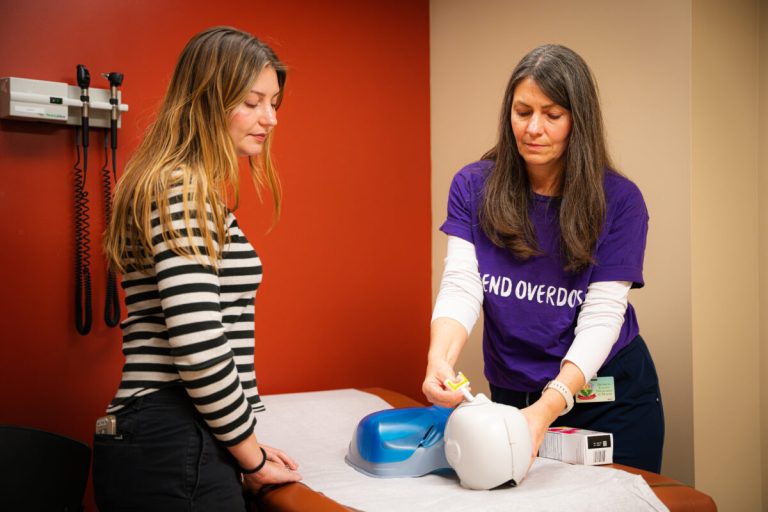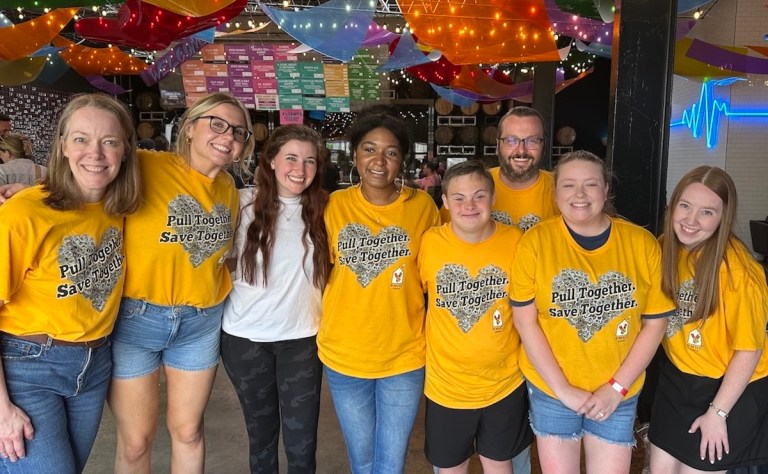Reviewed by: Cindy Hatcher
How Beyoncé’s dad + a Birmingham doc are starting new conversations about male breast cancer
Reading time: 5 minutes
Sponsored

Breast cancer isn’t just a woman’s issue; 1 in 726 men will face it, too, according to the Breast Cancer Research Foundation of Alabama (BCRFA). Mathew Knowles, Gadsden native, music mogul and father of Beyoncé and Solange, knows this firsthand.
I had the chance to speak with Knowles and his niece, Dr. Anjanetta Foster, a Birmingham physician and BCRFA board member, about the power of early detection, knowing your family history and how one specialty car tag can help save lives.
Mathew Knowles’ breast cancer journey + why he’s raising awareness with BCRFA

Mathew Knowles may be best known as the father of his superstar daughters, but he’s also using his voice and celebrity to raise awareness about something deeply personal: male breast cancer.
In 2019, Knowles publicly revealed that he carries a BRCA2 gene mutation and was diagnosed with Stage 1A breast cancer after noticing small drops of blood on his shirt. As a former medical imaging equipment salesperson, he knew this could be a warning sign of breast cancer and quickly consulted a doctor.
At his urging, the doctor ordered a mammogram, which confirmed the diagnosis. Knowles underwent a mastectomy shortly after.
What many may not know is that Knowles is a Gadsden, Alabama native. Since his diagnosis and treatment, he’s made it his mission to promote early detection, especially among men. He’s also partnered with the BCRFA, a Birmingham-based nonprofit dedicated to funding innovative breast cancer research in Alabama to help raise awareness throughout his home state.
Birmingham physician Anjanetta Foster is advocating for breast cancer research
Knowles’ niece, Dr. Anjanetta Foster, is equally passionate about raising awareness for breast cancer. As a Birmingham physician and BCRFA board member, she has seen firsthand how research transforms lives and the importance of knowing one’s family history.
She had already witnessed cancer through family members, including her father, who had lung cancer, and a cousin who battled breast cancer. But her uncle’s diagnosis hit differently.
“I knew male breast cancer existed, but even in my 30 years as a physician, I’ve only had one patient diagnosed with it. For my uncle to have it, and for him to call and say ‘You all need to get tested’, that hit home really hard.”
Dr. Anjanetta Foster
Through her uncle Mathew’s insistence, Anjanetta was able to help get her family tested for breast cancer.
“We’re one of those rally-the-troops families. We have the great fortune of having an uncle who is a public figure, which allows us to gain attention quickly.”
Dr. Anjanetta Foster
Men and breast cancer—what you should know

While breast cancer primarily affects women, men are also at risk. According to 2025 estimates by the American Cancer Society, about 310,720 new cases of invasive breast cancer will be diagnosed in women in the U.S. this year.
In comparison, about 2,800 new cases will be diagnosed in men. While that number may seem small, male breast cancer is especially challenging due to its rarity.
A lack of research, clinical trials and overall awareness means many men ignore the symptoms, leading to later-stage diagnoses and, potentially, worse outcomes.
Mathew Knowles, for example, was the first male patient in his doctor’s 40-year career to actually request a mammogram.
What you can do

With breast cancer affecting both men and women, I asked Knowles and Foster for suggestions on how people can be proactive about the disease. Here’s what they said:
1. Know your family history.
Understanding the different types of breast cancer and available treatments is key, but so is knowing your risk. If something feels off, speak up and talk to your doctor. You know your body better than anyone.
“If cancer runs in your family, your chances of developing it increase. Because of my family history, I realized my risk of getting breast cancer increased from one in eight to one in five. Your doctor won’t know if you’re at a higher risk if you don’t talk to them.”
Dr. Anjanetta Foster
2. Early detection saves lives.
“Most men don’t think about getting mammograms or checking for signs, but we have to be more diligent. Know your family history and listen to your body. I caught my cancer at the very beginning of Stage 1 and only needed to take a daily pill. The difference between that and late-stage treatment is life-changing.”
Mathew Knowles
What’s the Breast Cancer Research tag + why you should you care

You’ve likely seen the BCRFA specialty license plate before, thanks to its bold pink and gray design catching your eye on cars as they zip around Birmingham. But did you know this tag is one of the organization’s biggest sources of funding for local research?
Here’s how it’s making a big impact:
- $41.25 of the $50 tag fee directly benefits the BCRFA, with 100% invested in Alabama-based breast cancer research.
- It generates over $500,000 annually for breast cancer research.
- It helps launch early-stage studies that often attract major federal grants + funds dozens of innovative projects from advanced imaging to breakthrough treatments.
The best part? You can order the tag any time and turn your daily drive into a year-round statement of support.
Order your Breast Cancer Research tag now and help fund breast cancer research that saves lives across Alabama and beyond. Already have a tag? Donate here.
Sponsored by:





 11454 views
11454 views